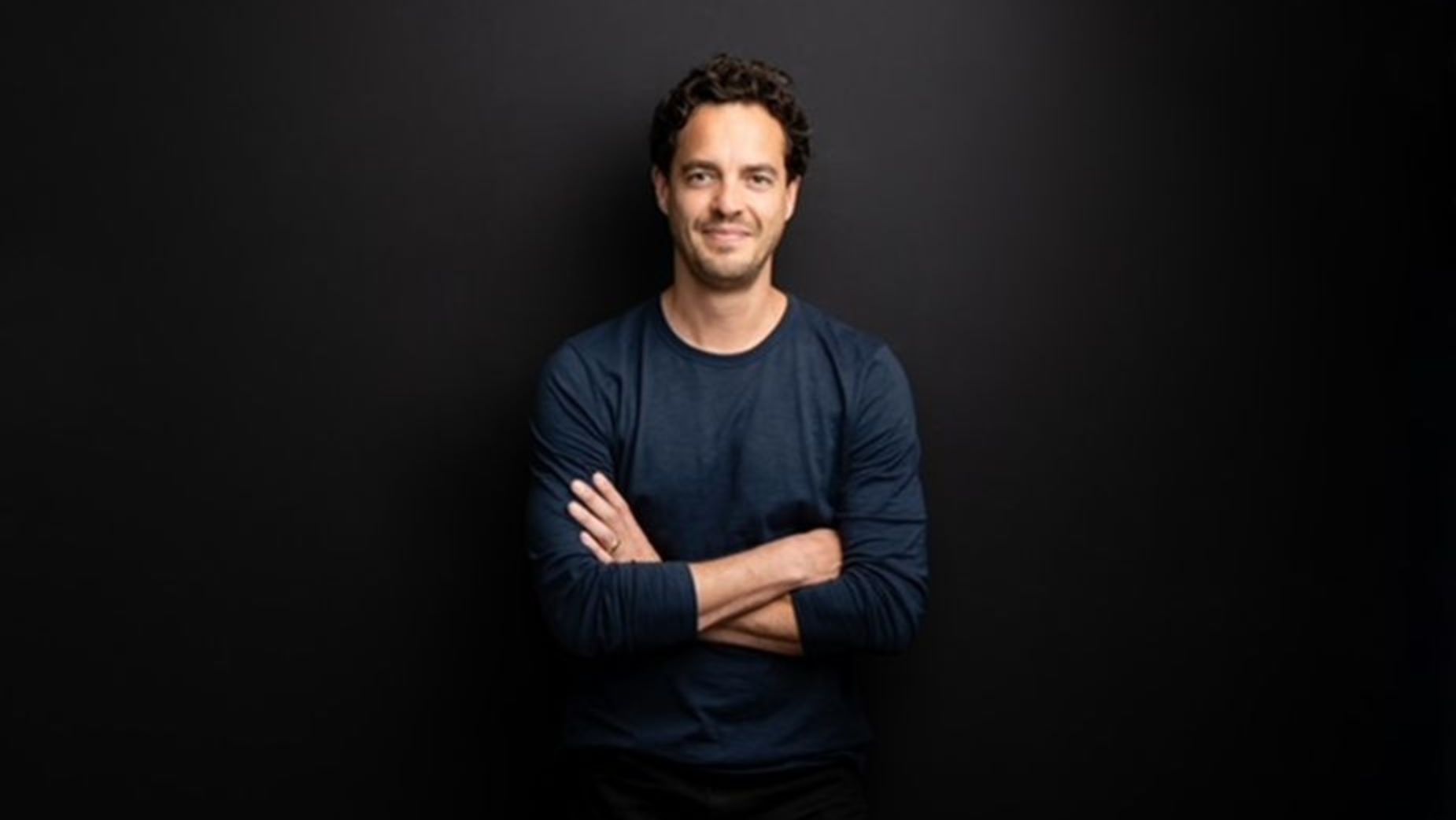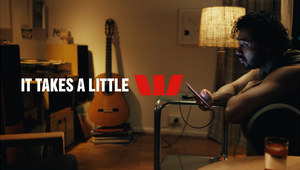
Bossing It: Embracing Responsibility with Michael Gie

Michael Gie is partner and executive producer of Rumble Studios. As a creative producer Michael works closely with composers to ensure their music delivers on emotion, authenticity and quality and is committed to giving clients an exceptional studio experience.
LBB> What was your first experience of leadership?
Michael> In the tender years of my late teens I worked at a surf store (in the surfing mecca of Brisbane I should add), and because I was adept at selling product they promoted me to 2IC under a very absent manager. I had no idea what I was doing, so luckily the stakes weren’t too high, but it was my first taste of juggling various egos and work ethics and taking responsibility for a team.
LBB> How did you figure out what kind of leader you wanted to be – or what kind of leader you didn’t want to be?
Michael> I built my framework by observing other leaders; both ones I admire and ones I don’t. I never wanted to use fear as a motivator. Having been in environments where people were afraid to make mistakes, I saw a culture of blame that traced back to senior staff. Communication was always high on my radar. I’ve had bosses who spoke lots, spoke loud, and didn’t inspire any passion, and others that said very little and were incredibly inspiring.
The one’s I really admired led through their own work ethic, protected their people, shouldered the burdens and failures but shared the successes. I’m still working on it but that’s the goal.
LBB> What experience or moment gave you your biggest lesson in leadership?
Michael> Resignations from people you respect tends to give way to reflection. Obviously there’s a myriad of reasons people leave a business and it’s an unavoidable part of the job, but knowing the reasons can give you lots of perspective and learnings you can use to make improvements. Seeking brutal honesty can hurt but it can help greatly in your development.
LBB> Did you know you always wanted to take on a leadership role? If so how did you work towards it and if not, when did you start realising that you had it in you?
Michael> While I knew I wanted to excel I wouldn’t say it was a fully conscious decision to be a ‘leader’. I was driven to be great at what I do and that was the focus. Then one day you look around and people are coming to you for guidance and support and because of your experience you’re in the position to provide that. I think that’s the fork in the road where you choose to deflect that responsibility or embrace it.
LBB> When it comes to 'leadership' as a skill, how much do you think is a natural part of personality, how much can be taught and learned?
Michael> I believe it can all be learned, but your style of leadership should be determined by your nature. The most effective leaders are authentic, so as long as you’re true to yourself and your values then there are many ways to be successful at it.
LBB> What are the aspects of leadership that you find most personally challenging? And how do you work through them?
Michael> The most challenging part I’ve found is continuously adapting to individual needs. We’re all unique and emotional creatures who are motivated in different ways and respond very differently to critique. I’ve learned to give due consideration to who someone is and how they work, rather than a one size fits all approach.
When you’re under pressure that can be tough, as you need to invest a lot more time and mental energy, but you get a much better result. When you’re an inexperienced leader, uncomfortable conversations can be quite challenging but you can’t shy away from them. The more you’re exposed to those difficult situations the better you become at dealing with them.
I read somewhere that your success can be measured by how many uncomfortable conversations you’re willing to have, so by that metric I’m definitely on my way, ha ha.
LBB> Have you ever felt like you've failed whilst in charge? How did you address the issue and what did you learn from it?
Michael> For sure. Failures are par for the course, especially at the start when I was inexperienced at managing people. I realised most of my failures came when I reacted too quickly to a situation and let emotions drive my response. I’ve tried to build a habit of not reacting instantly when something happens.
If it’s in conversation it might be a couple of breaths, if it’s a bigger situation it might be a day or two to assess and come back with a much more considered perspective. I love the Victor Frankl quote, something along the lines of “Between stimulus and response there is a space. In that space is our power to choose our response. In our response lies our growth and our freedom”. Sounds easy, but it’s really not.
LBB> In terms of leadership and openness, what’s your approach there? Do you think it’s important to be as transparent as possible in the service of being authentic? Or is there a value in being careful and considered?
Michael> I’m a fairly open book and I think everyone deserves a degree of transparency. But this goes back to my point on adapting to the individual; Knowing who appreciates a bit of candour and who needs a more considered or delicate approach. As long it’s respectful then for me openness is the preferable approach.
LBB> As you developed your leadership skills did you have a mentor, if so who were/are they and what have you learned? And on the flip side, do you mentor any aspiring leaders and how do you approach that relationship?
Michael> My father has always been my mentor. He’s from a very different sector (environmental science) and managed the southeast Asia market of his business. He had to deal with not only personality differences but deep cultural differences between staff. He fostered such mutual respect because he always sought to understand first and then give his assessment and he didn’t play any games. For him as a leader they wanted to work with him but also have a beer with him, I liked that.
My business partner Tone Aston has also been instrumental in guiding and advising me. His foresight and objectiveness to situations and creativity has helped me be able to shift perspective when I need to and see the importance of viewing things from the other side. My mentoring journey is just beginning, I’ll get back to you on that one.
LBB> In continually changing market circumstances, how do you cope with the responsibility of leading a team through difficult waters?
Michael> Just don’t panic.
LBB> As a leader, what are some of the ways in which you’ve prioritised diversity and inclusion within your workforce?
Michael> We’re fortunate in music as it’s so diverse by nature and universal as an artform that we attract people from all walks of life. Inclusivity has always been part of our ethos and as we’ve grown as a business we’ve ensured our team stays diverse and that everyone feels safe and celebrated for who they are; their culture, ethnicity, sexual preference and everything in between.
LBB> How important is your company culture to the success of your business? And how have you managed to keep it alive with increases in remote and hybrid working patterns?
Michael> It's vitally important. We’ve created an in-studio environment that our clients love, our team culture feeds off, and that is better for our workflow and ultimately our creative output. We are client facing every day so hybrid working has not been a part of our patterns. We do a lot of team events, dinners and celebrations, Friday lunches and aggressive Uno and ping pong battles.
LBB> What are the most useful resources you’ve found to help you along your leadership journey?
Michael> I’ve read a lot of books and listened to a lot of podcasts but the best resource is the people around me. Connecting with peers in other businesses, or leaders from other industries, and chatting through challenges, asking questions, continuously learning and absorbing the lessons that others have learned the hard way. You’d be surprised by how generous people are with their knowledge and insights if you just ask.















